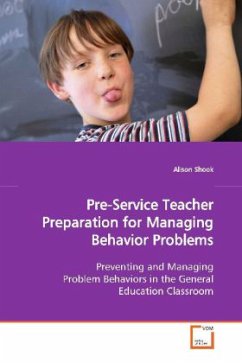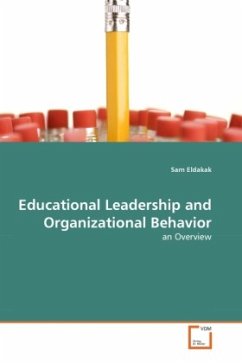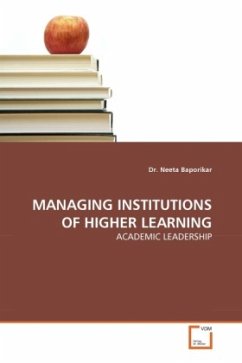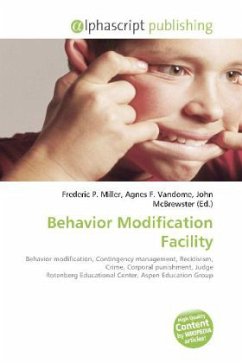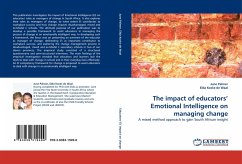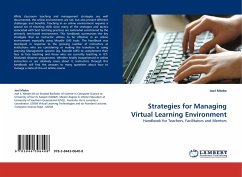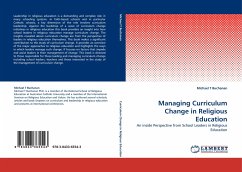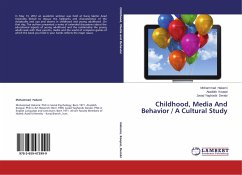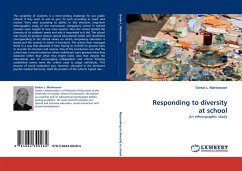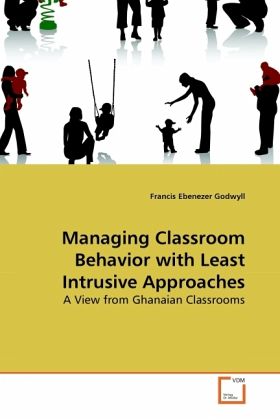
Managing Classroom Behavior with Least Intrusive Approaches
A View from Ghanaian Classrooms
Versandkostenfrei!
Versandfertig in 6-10 Tagen
39,99 €
inkl. MwSt.

PAYBACK Punkte
20 °P sammeln!
The book is set against the background of the prevailing practice in Ghanaian classroom where the cane is almost always present. Many experts such as Zoltor, Theodore, Chang, Berkoff and Runyan (2008) recommend corporal punishment as an option for discipline (p. 364), the Ministry of Education in Ghana also supports it, all be it that they have guidelines for its execution which are largely ignored by the schools. What has come to be called corporal punishment is a rampant practice in Ghanaian classrooms which creates fear and intimidation and leaves very little room for caring behaviors to oc...
The book is set against the background of the prevailing practice in Ghanaian classroom where the cane is almost always present. Many experts such as Zoltor, Theodore, Chang, Berkoff and Runyan (2008) recommend corporal punishment as an option for discipline (p. 364), the Ministry of Education in Ghana also supports it, all be it that they have guidelines for its execution which are largely ignored by the schools. What has come to be called corporal punishment is a rampant practice in Ghanaian classrooms which creates fear and intimidation and leaves very little room for caring behaviors to occur. It is my contention that a classroom situation which is devoid of care but manifest uneasiness, fear and intimidation can stifle certain types of learning. Thus this book looks at alternative approaches that are less intrusive as strategies for managing classroom behavior. Two applied behavior analysis techniques, positive reinforcement and extinction were used in modifying the selectedinappropriate behaviors. The two psychological techniques were also compared for effectiveness.



